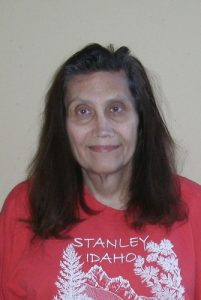A hillbilly story?
When I first started reading this autobiography, I wasn’t very impressed. My initial reaction was, oh great, a hillbilly family, how can this possibly relate to MY life?
But as I was reading it, I saw it as a reflection of every person’s struggle to do what they want and want what they want rather than what other people want them to do and want. And to be able to reject a worldview force-fed to them at a tender age and select their own goals, values, and life plan.
In particular, I finally realized there were many similarities between Tara Westover’s upbringing and my own — although she’s had it far, far worse than I have. I ended up reading her book twice.
A lot of the author’s problems came from a father who was paranoid, deluded, domineering, self-centered to the point of abuse, and utterly neglectful of the need for safety. And a mother who blindly supported him (and a select few others in the family) whether he was right or wrong.
A Mormon family
I’m no expert on the LDS but I do know they are heavily into authority, obedience, and patriarchy. Utah’s (which has the highest concentration of Mormons) nickname is The Beehive State, which is a tribute to the fact that “good” Mormons work hard to raise large families. (Side note: they have beautiful architecture — which I saw on a visit to Salt Lake City years ago.) The author being from a very devout Mormon family made it even MORE difficult to break free from the life that tradition had forecast for her. There were very few to whom she could turn to for support; people like her bishop would just take “the other side” and reinforce the traditional message.
Polygamy

Polygamy is defined as having more than one husband or wife at the same time — although in actual practice, it’s one husband and several wives. Mormonism actively supported plural marriages until the point the United States Government made them stop — and even then, there are a lot of “secret” plural marriages out there.
Many other cultures also condone polygamy — Moslem tradition allows a man up to four wives “provided he can afford them”. Even the Old Testament mentions King Solomon and his 1000 wives.
While this all may seem like a good idea for a man with needs, I can’t help but think, if some men have two or more wives, doesn’t that mean other men have to go without? I don’t know what the social implications of that are, but the only way around that problem would be to require families to have many daughters but only one son. And even though the technology for that exists, I don’t see that happening any time soon. Many cultures (unfortunately!) consider sons to be more valuable than daughters.
The status of women

Life in Idaho doesn’t seem to value equality and tolerance very much (I should know — I lived there a year, near Stanley, about half way between Buck’s Peak and Ruby Ridge). The consensus seems to be that all women want to live a certain (traditional) way, and they want to live that way because they are women, with no further explanation needed. And those that don’t must have something wrong with them.
In all societies, fathers are given a lot of authority. Perhaps this is the price society pays for men who won’t abandon the family at the first opportunity — power in exchange for support. Although we’ve come a long way from “if your father beat you, you must have done something to deserve it”, both parents are given great leeway in how to raise their children.
(A question that pops up again and again, is who should have the final say in how children are raised, the family or the state? I myself am not sure I can trust either one. But in the Westovers’ case, a little more state intervention couldn’t have hurt.)
In the author’s growing-up environment, “feminist” was considered an accusation; a dirty word. But it simply represents a refusal to submit to unjust oppression.
The Preppers

In the Westovers’ case, prepping took the form of avoiding established government in any form: no registering the children for school, no registering of births for some of the children until years after the fact, no doctors, no car registrations, no car insurance; and stockpiling food, gasoline, ammo, and weapons. The overall climate of distrust of the outside world permeated the author’s childhood.
Abuse
Other than the mental abuse as a result of impressing a distorted world view on the kids, the most serious abuse came from the author’s brother Shawn (pseudonym) — who liked to use violence against others to vent his own frustrations — and then more violence to demand his victims passively accept what was done to them, without telling. The father, Greg (pseudonym) would support him by refusing to believe what was happening before his very eyes, refusing to put a stop to it, and even calling Shawn to report what the author (and others) had said (accused) him of. The phrase “blaming the victim” comes to mind.
By experiencing abuse and being forced to accept it, not complain, and even apologize to the one who was abusing her, Tara Westover began to lose her grip on reality. Fortunately, she gained it back in the end.
Education
Having no formal education before coming to Brigham Young University was a handicap, but it didn’t seem to slow her down too severely. She must have been real smart to get caught up quickly, and to excel in her studies enough to win much-needed scholarships.
I never even heard of her major, historiography (the study of historians) before reading this book, but the idea fascinates me. I especially like the quote from John Stuart Mill: “Of the nature of women, nothing final can be known … that women have been coaxed, cajoled, shoved and squashed into a series of feminine contortions for so many centuries, that it is now quite impossible to define their natural abilities or aspirations.” I’d like to read some more of his works.
Family
Underneath all the craziness, Tara Westover loved her family. When her parents made her choose between her new life and her old, her choice caused them to reject her — which put her into a yearlong depression. I have no doubt she is still hurting from this, but she knows her obligation to herself is the most important thing.
And me
There were plenty of parallels between my life and the author’s. In particular, my own father was authoritarian and demanding. He thought he was always right, and demanded agreement with him and his distorted worldview. But he never shut me up totally. My needs came last in the family; sometimes all I would get was not what I wanted, but what they (my mother and my father) decided I wanted.
My mother did little or nothing to protect me from all of this. I grew up introverted, having learned to see the world through suspicious eyes.
My parents favored my elder brother over me time and time again. He was the target of this too; but he had his own way of relieving his stress — he would take his frustrations out on me in the form of teasing me and being annoying. Every little thing I did wrong, even honest errors, he would magnify into “proof” that I was a damaged individual. When he couldn’t find anything I did wrong to criticize me for, he would make up something. When you are denounced every single day of your life, you begin to think there really is something wrong with you.
College was not an escape
College was not an escape for me. I went to CCNY, a “commuter college”. But like Tara Westover, I had a scholarship and graduated near the top of my class. Also like the author, I had never heard of the word Holocaust before I was fully an adult — I suppose my teachers were old enough to have lived through World War 2 and thus not consider it to be history; and the “convoy system of education” (the whole class goes as slow as the slowest student) meant the school year would always be over before getting past the French Revolution.
Eventually I graduated, got a job, and moved out.
It seems I NEVER got my parent’s approval for anything. It was a very liberating day when I decided I didn’t need or want it — and since then I just didn’t care if they approved of me or not. Totally didn’t care. (As opposed to the author who cared deeply about her relationship to her family.)
Eager to start a new life, I moved to California. A year after that, I came home for Christmas dinner, and all the old conflicts came back. It was then I decided, not to eliminate contact with my family of origin, but to severely reduce it — with up to 7 years between visits. Finally, when my father was 80, he died, and I had no problem with that. Dying was the best thing he ever did for me.
Now I live in Europe and have built a new life for myself. I’ve made plenty of mistakes along the way, but know things will be better.
If you have any thoughts to share, please enter a comment below or contact me directly.

It’s my plan to make a new posting every Wednesday at 16:00 (4 in the afternoon) Paris time. Which means there’s another one coming out in a few hours.
First of all I want to say awesome blog! I had a quick question which I’d
like to ask if you do not mind. I was interested to know how you center yourself and
clear your thoughts before writing. I’ve had a tough time clearing my mind in getting
my ideas out there. I truly do enjoy writing but it just seems like the first 10 to 15 minutes are usually wasted simply just trying to figure out how to begin. Any
recommendations or tips? Many thanks!
whats the next review?
It should come out in about 2 months.
I am in fact thankful to the holder of this web page who has shared this
fantastic article at here.
The best protection is to keep making frequent backups.
Yes. It’s easy to use. There are a few annoying things about it, but only a few.
Thanks, Ladonna. I do have an e-mail address you can contact me at: jenfree@www.freshnewideas.eu .
Hi, I check your blog like every week. Your writing style
is witty, keep up the good work!
Hey there would you mind sharing which blog platform you’re
using? I’m planning to start my own blog soon but I’m having a difficult time selecting between BlogEngine/Wordpress/B2evolution and Drupal.
The reason I ask is because your design seems different then most
blogs and I’m looking for something unique.
P.S Sorry for being off-topic but I had to ask!
I’m using the Type theme under WordPress, and I’m happy with it. I did get professional help.